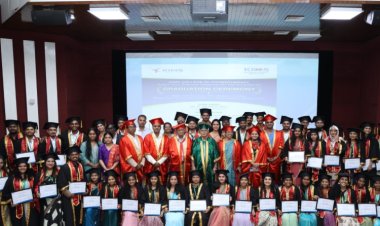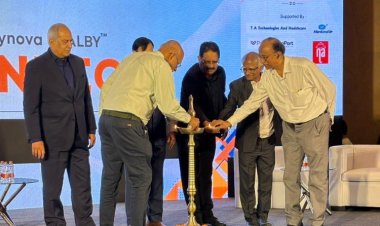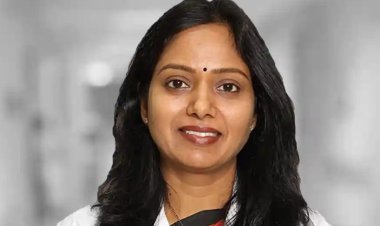Cardiovascular and public health research in India

It is very important for people at the bottom of the pyramid to benefit from affordable healthcare solutions. The aim of research must be to help people in this section of the society get the best of quality affordable care.
The George Institute for Global Health, who has been working to generate high-quality evidence and improve the health of millions of Indians by reducing premature deaths and disability from non-communicable diseases like cardiovascular disease, diabetes, kidney disease, stroke, mental health, and injuries, celebrated its 10th anniversary in India.
Delivering oration Prof K. Srinath Reddy, president, Public Health Foundation of India, on 'Chronic Diseases in India: Challenges in Catalysing Research and Converting Policy', he gave an overview of the evolution cardiovascular and public health research in India over 50 years, and using examples from the work of several researchers. He felt that fiscal measures, policy decisions, multi-sectorial approach and reshaping the social and environmental determinants to health were going to be critical for healthcare delivery in the future. Transdisciplinary research should provide meaningful information to policymakers, which can in turn influence policy.
He said, “We ought to be able to demonstrate even in a low resource setting on how technology enabled frontline health workers can be competent and effective in detecting the common diseases and risk-factors like blood pressure & diabetes” and went on to add “the role of a health professional is to elucidate as a researcher, educate as a teacher, alleviate as a clinician, advocate ass an activist and agitate as a concerned citizen. We all play one of these roles. If we can collectively discharge all these functions, we think we can minimize death and disability due to various diseases in India.”
Post the oration, there was a lively interesting panel discussion on the topic of Patient and Public participation in Healthcare Delivery, moderated by Prof. Ian Jacobs, Vice-Chancellor, University of New South Wales. Dr. Rajani Ved, Executive Director, National Health Systems Resource Centre; K. Sujatha Rao, Former Secretary of Health and Family Welfare, Govt. of India; Dr. Dinesh Arora, Director- Health, Niti Aayog; Dr. Narottam Puri, Medical Advisor, Fortis Healthcare & Advisor Health Services FICCI and Mr. Dinesh C Sharma, Managing Editor, India Science Wire were part of the panel discussion.
Important factors:
![]() Increase conversation amongst members of the public around healthcare related issues
Increase conversation amongst members of the public around healthcare related issues
![]() Look at delivering long-term plans for disease prevention, ensuring adequate financing, developing sustainable delivery mechanisms and development of mechanisms to increase popular participation in healthcare planning.
Look at delivering long-term plans for disease prevention, ensuring adequate financing, developing sustainable delivery mechanisms and development of mechanisms to increase popular participation in healthcare planning.

 Disclaimer: Welthi.com does not guarantee any specific results as a result of the procedures mentioned here, and the results may vary from person to person.
Disclaimer: Welthi.com does not guarantee any specific results as a result of the procedures mentioned here, and the results may vary from person to person.









